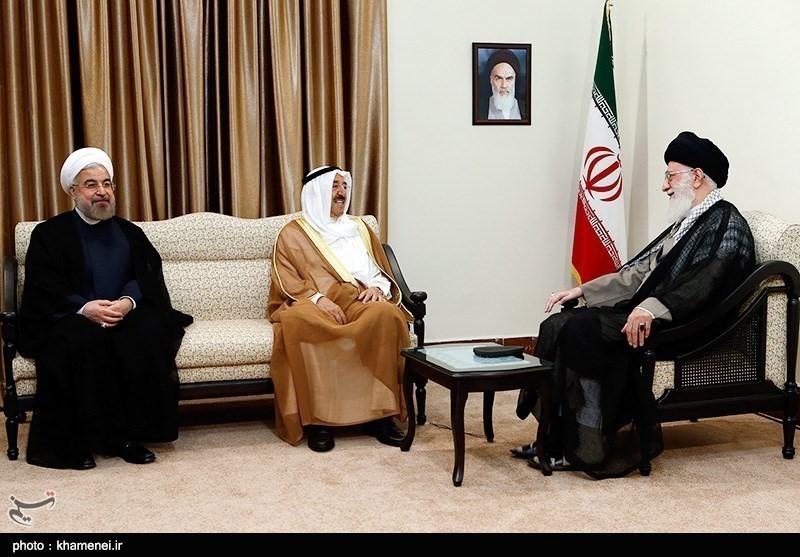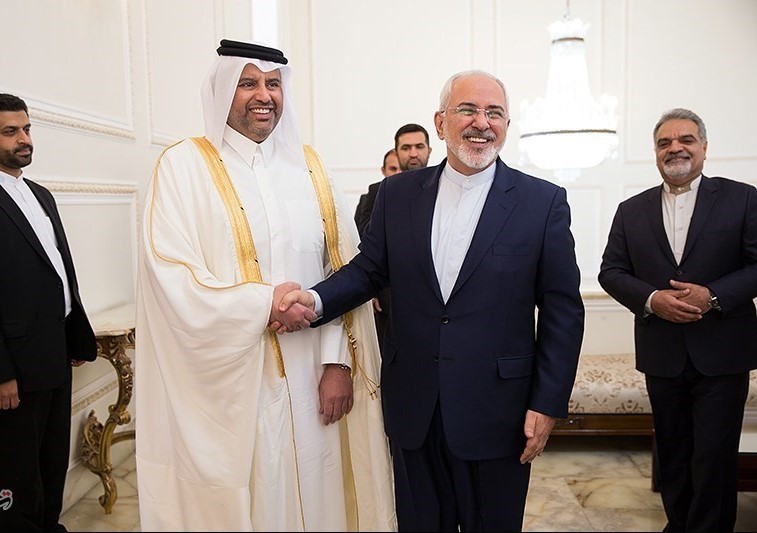The first cases of COVID-19 in five Arab sheikhdoms — Bahrain, Oman, Kuwait, Qatar and Saudi Arabia—were all traced to travelers from or transiting through Iran, an early epicenter of the pandemic. The United Arab Emirates traced its first case to China. By April 30, the Gulf states reported more than 54,000 total cases, with 298 deaths. Saudi Arabia had the most confirmed cases and deaths.
The pandemic exacerbated the divide among the six sheikhdoms of the Gulf Cooperation Council—all ruled by Sunni monarchs—over whether to better relations with predominantly Shiite Iran. Bahrain and Saudi Arabia accused Iran of initially covering up the COVID-19 outbreak and allowing the virus to spread unchecked throughout the Middle East. But Kuwait, Qatar and the UAE empathized with Iran and provided millions of dollars in humanitarian assistance.
The GCC was originally formed in 1980 to create a unified policy on Iran after the 1979 revolution ousted the monarchy. The following is a rundown of how the new coronavirus spread from Iran to five of the six GCC states.
Related Material: "Coronavirus Spreads from Iran to Afghanistan"
Bahrain
On February 24, Bahrain confirmed its first case of the coronavirus in a citizen who had traveled to Iran. The next day, it banned all travel to Iran and threatened tough penalties for anyone who violated the order. Bahrain, which has a Shiite majority population, is ruled by a Sunni monarchy; many Shiites make pilgrimages to holy sites in Iran. In February and March, hundreds of Bahraini pilgrims were stranded in Iran for weeks because the ban. Evacuation efforts were complicated by the history of tense relations tied to Tehran’s support of anti-government parties and militant groups. The sheikhdom later reported 77 new cases of COVID-19 among the Bahrainis were repatriated.
On March 11, Bahrain accused Iran of deliberately exporting the virus to the Gulf by letting Bahrainis visit without stamping their passports. “With this behavior, Iran has allowed the disease to travel abroad, and in my estimation this constitutes a form of biological aggression that is criminalized by international law, as it has put in danger our safety and health and that of others,” Bahraini Interior Minister General Sheikh Rashid bin Abdulla Al Khalifa said.
PT: Iran violated the international laws and norms by not stamping the passports of Bahrainis while entering and leaving the country. It is worth mentioning that we didn’t ban our citizens from travelling to Iran.
— Ministry of Interior (@moi_bahrain) March 12, 2020
Kuwait
On February 24, Kuwait confirmed its first cases of the coronavirus in three people who had traveled to Iran, one of whom was a Kuwaiti citizen. The announcement came three days after Kuwait restricted Iranians from entering the country and suspended all flights to Iran. Tehran has maintained cordial diplomatic relations with Kuwait despite its past tensions over Iranian support for militant opposition cells. In December 2013, Iranian Foreign Minister Zarif visited Kuwait for the first of several during the Rouhani administration to improve relations. In February 2017, President Hassan Rouhani traveled to Kuwait for talks on reducing regional tensions.
Iran’s diplomatic outreach to Kuwait paid off during the COVID-19 pandemic. On March 17, Kuwait’s foreign minister pledged $10 million in humanitarian assistance to Iran. Zarif spoke with Foreign Minister Ahmad Nasser Al Sabah twice in March; Kuwait expressed “solidarity” with Tehran against the coronavirus, the Iranian Foreign Ministry said.

Kuwaiti Emir Sabah al Sabah met with Supreme Leader Ali Khamenei and President Hassan Rouhani in 2014
Qatar
On February 29, Qatar confirmed its first case of the coronavirus in a 36-year-old male who had traveled to Iran. On March 8, Qatar banned travelers from Iran and 13 other countries with significant outbreaks. But Iran and Qatar maintained warm diplomatic relations during the crisis. The two countries grew closer after the Gulf Cooperation Council severed ties with Qatar in June 2017 and imposed an economic blockade. Iran sent food supplies to Qatar and allowed the Arab sheikhdom to use its airspace and shipping routes to get around the blockade. In August 2017, Qatar restored full diplomatic relations with Iran.
Tehran benefited from closer ties with Qatar during the pandemic. Qatari Emir Sheikh Tamim bin Hamad al Thani pledged humanitarian support for Iran. On March 17, Qatar sent six tons of assistance, including medical equipment, to Iran. On March 20, it sent a second shipment that included masks, sterilizers and disinfectant. On April 25, Qatar sent 15 tons of basic medical supplies after a phone call between Rouhani and al Thani. And on April 29, Qatar sent 16 additional tons of medical supplies, its largest delivery to date.

Foreign Minister Mohammad Javad Zarif met with Qatari Minister of Economy and Trade Ahmed al Thani in 2017
Related Material: "Iran’s COVID-19 Impacts Iraq, Syria, Lebanon"
Saudi Arabia
On March 2, Saudi Arabia confirmed its first Covid-19 case, a man who had traveled to Iran and Bahrain. It reported the first death, an Afghan resident, on March 24. The kingdom accused predominantly Shiite Iran of “direct responsibility” in increasing COVID-19 infections across the wider Gulf. On March 8, the government imposed a lockdown to isolate its Shiite population in eastern Qatif Province. Most cases in Qatif came from people who had returned from pilgrimages in Iran, despite the longstanding Saudi ban on travel to Iran. The Saudi Foreign Ministry denounced Tehran for “allowing Saudi citizens entry to its territories without stamping their passports.”
#Statement pic.twitter.com/rEmt9YTe9K
— Foreign Ministry 🇸🇦 (@KSAmofaEN) March 5, 2020
But in April, Riyadh sought to end its five-year war in Yemen after the U.N. warned that an outbreak of COVID-19 in Yemen, the poorest of more than 20 Arab nations, would be devastating. On April 9, the Saudi-led coalition declared a two-week ceasefire. Colonel Turki al Maliki, the spokesperson for the military coalition, said the ceasefire would allow for talks with the Iranian-backed Houthis for a permanent ceasefire. On April 13, Zarif spoke with UN Secretary-General Antonio Guterres and echoed Riyadh’s call for a “lasting ceasefire” in Yemen.
United Arab Emirates
On January 29, the UAE confirmed its first cases of the coronavirus in a family who had traveled from Wuhan, China. But the UAE soon felt the regional spillover effect from Iran’s epidemic. On February 22, the health ministry identified an Iranian couple with the virus. On February 27, it announced six more cases among people who had arrived from Iran. Emirates airline suspended all flights to and from Iran, as did FlyDubai and Air Arabia.
The epidemic accelerated the tentative détente between the UAE and Iran that began in late 2019. An Iranian delegation held secret talks in the UAE in September 2019 to tamp down regional tensions. In March, the UAE was among the first countries to offer humanitarian assistance--nearly 40 tons of medical supplies, including laboratory tests, gloves and masks--to Iran to combat the coronavirus. On March 15, the Emirati foreign minister stressed the importance of “collective work” in a phone call with his Iranian counterpart. Foreign Ministry spokesperson Abbas Mousavi tweeted that Iran was “sincerely thankful” and would “never forget the way they stood with #Iran in hard times.”
Provision of medical supplies is critical to curbing the spread of COVID-19, and the UAE is committed to doing all it can to stamp out the virus, both at home and around the Gulf region.
— هند مانع العتيبة Hend Al Otaiba (@hend_mana) March 16, 2020
Andrew Hanna is a research assistant at the U.S. Institute of Peace.
